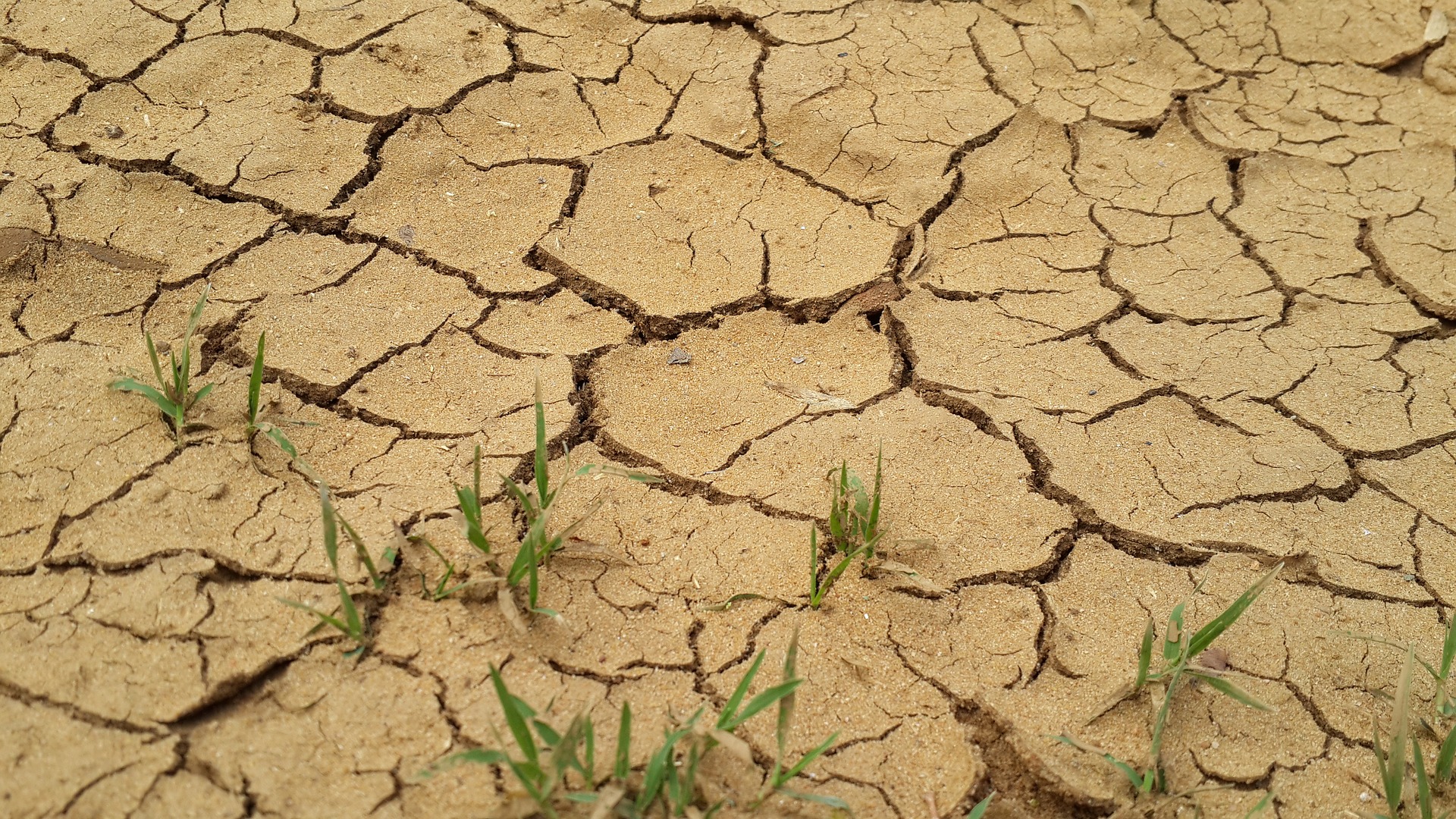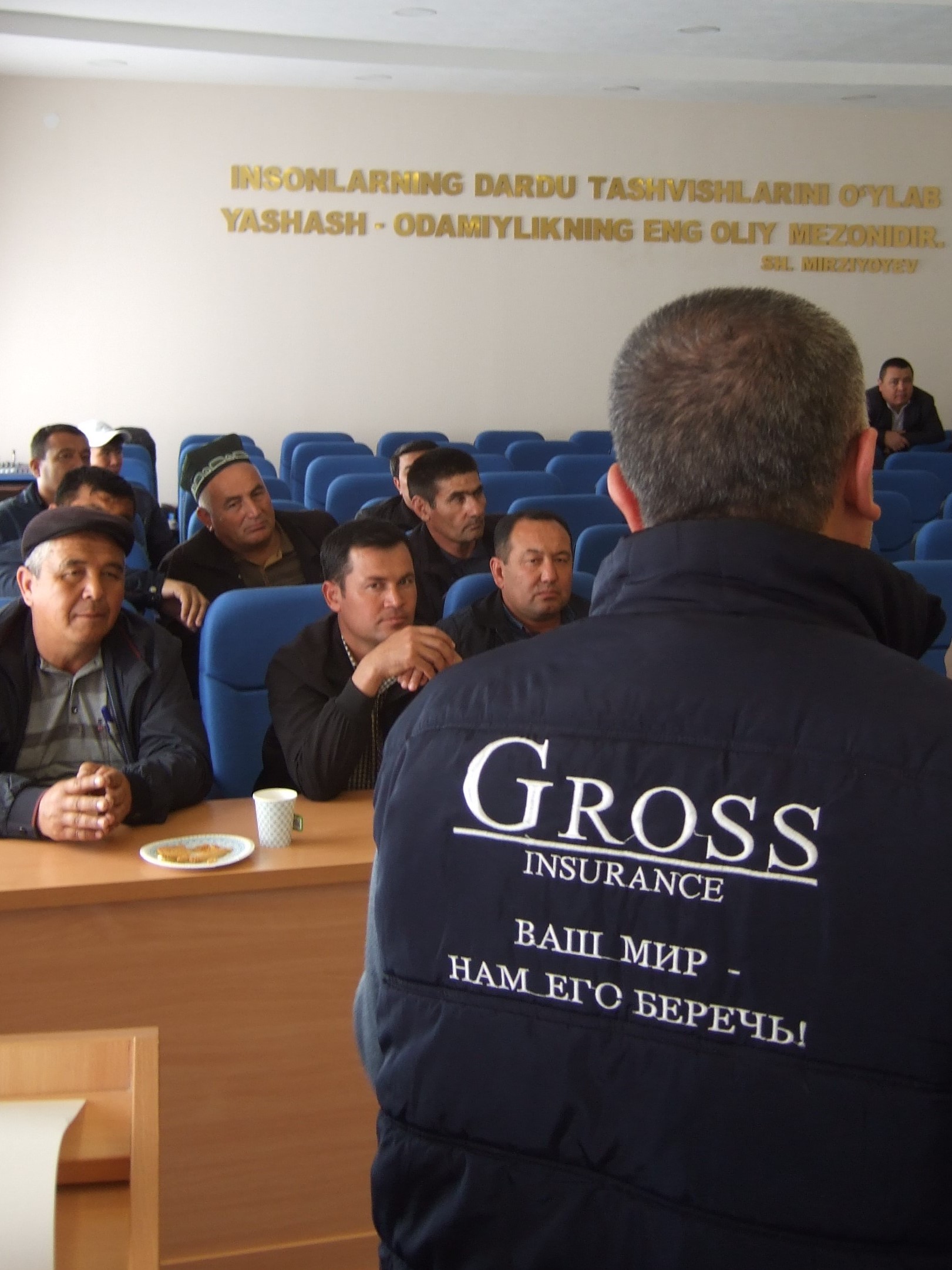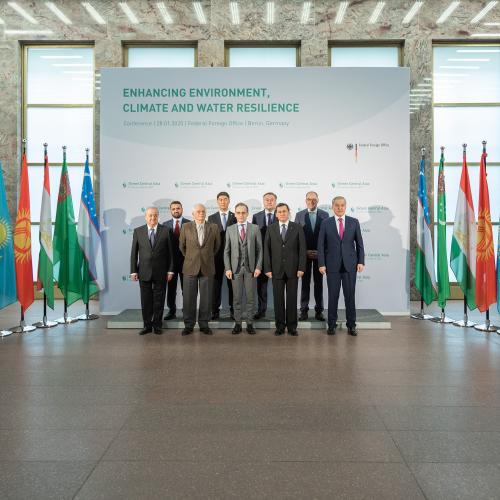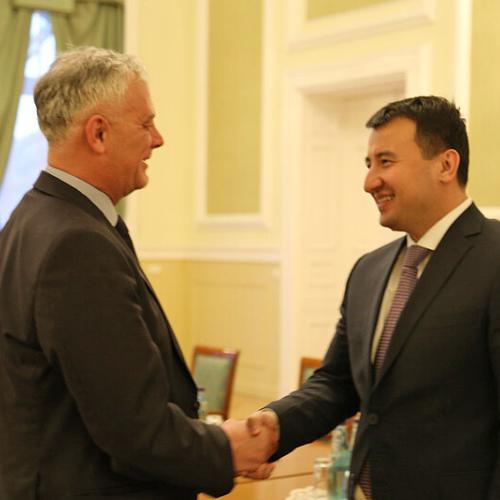

Zero hunger
Climate action
Decent work and economic growth
Partnerships for the goals
Coordinator: Leibniz-Institut für Agrarentwicklung in Transformationsökonomien - Abt. Agrarmärkte
Contact Person: Dr. Ihtiyor Bobojonov
Address: Theodor-Lieser-Straße 2, 06120 Halle
Phone: +49 345 2928247
Email: Bobojonov(at)iamo.de
Project partners in Germany:
- Humboldt University of Berlin
- Hannover Rück SE
Project partners in the partner countries:
- Jubilee Kyrgyzstan Insurance Company, Bishkek (Kirgistan)
- Gross Insurance, Tashkent (Usbekistan)
- University of Central Asia, Biskek (Kirgistan)
- Center for Applied Research TALAP, Astana (Kasachstan)
- Tashkent State University of Economics, Tashkent (Usbekistan)
KlimALEZ - Increasing Climate Resilience in Central Asia - Sustainable Rural Development through the Introduction of Innovative Agricultural Insurance Products
Income volatility in agriculture is increasing worldwide due to climate change. Especially in Central Asia, drought is one of the biggest climate risks. Adaptation strategies of producers are limited due to underdeveloped financial markets and low capital reserves. Innovative index-based crop insurance can help better adapt agriculture to climate risks such as drought. In the KlimALEZ project, German, Kyrgyz, Uzbek and Kazakh partners are therefore developing a satellite-based pilot product. The project enables cooperation between national insurance companies and German reinsurance companies.
Climate volatility of agricultural producers caused by lack of insurance cover
Underdeveloped financial markets are contributing to the reduced adaptability of agricultural producers to climate risks in Central Asian countries. They are therefore often affected by severe economic losses in the event of extreme weather events such as drought and excessive rainfall.

The aim of KlimALEZ is to increase the resilience of the Central Asian agricultural sector to climate risks through innovations in the agricultural insurance markets. By means of a transdisciplinary approach and in cooperation with regional insurance companies and a German reinsurer, an index-based agricultural insurance programme will be developed for various Central Asian countries and introduced in a small pilot project, and its impact on socio-economic development and strategic business decisions will be measured.
In addition to increasing the economic resilience of agricultural operations to climate events, the introduction of drought insurance should also serve to increase investment in sustainable agriculture. Not only will the project help address the challenges of climate change in the agricultural sector, it will also strengthen cooperation with emerging and developing countries in research and development for sustainable socio-economic growth.
Development and establishment of innovative insurance products
Despite a wide range of measures to cope with ever-increasing climate risks, their adaptation is hampered in Central Asia by financial constraints and farmers sceptical of innovation. While Kazakhstan and Uzbekistan already have functioning insurance markets, other countries in the region are also considering options for establishing agricultural insurance markets. However, until now, only traditional insurance products have been used, while innovative index-based insurance products have not yet been systematically tested.
As part of KlimALEZ, a database of existing projects and involved experts will be created after a comprehensive review of the literature on global experiences with the establishment of comparable projects. Based on the existing research activities of the project partners, an investigation into the suitability of various weather indices based on climate and remote sensing data for different regions of Central Asia will follow. A pilot study among farmers in the region will be done after the identification of feasible index products for Central Asia. This will then be checked for effectiveness.

Benefits for agricultural producers and other stakeholders
The project results of KlimALEZ will consist of the identification of suitable indices and the calibration of the insurance product as well as the sale of pilot insurance policies to agricultural enterprises. Furthermore, the project will develop an influence analysis of the adoption of the insurance product concerning risk perception, investment activity and productivity of agricultural producers. The results will primarily be used by farmers, insurance companies, international organisations and development cooperation institutions.
The project involves regional and international partners. In addition to the research group, this includes insurance companies and reinsurers, local administrations and ministries. A scientific advisory board will also provide support for the project with technical expertise.
The pilot activities carried out under the project are covering all phases, from obtaining legal authorisation to selling the contracts to farmers. The project's overall character is intended to build a functioning index insurance market, thus contributing to better adaptability and sustainability of agricultural production.
KlimALEZ produces video about drone technology in agriculture

Science to Business and Policy: IAMO scientists support the launch of satellite-based index insurance for Mongolian wheat producers

CLIENT II projects attend the Green Central Asia conference

KlimALEZ team meeting with Minister for Agriculture of Uzbekistan, Jamshid Khodjaev

